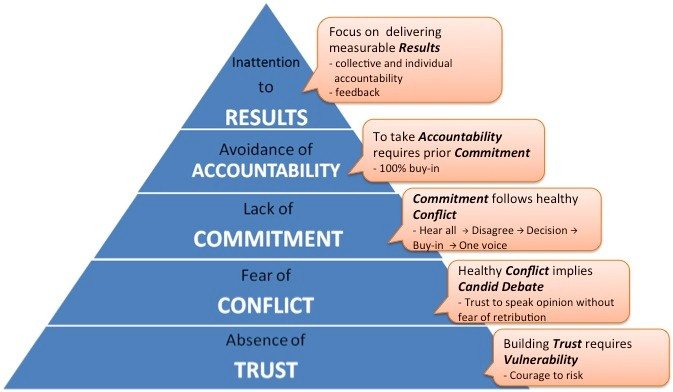“Yes, I cracked it – this is way too easy, what’s next?” rang out a participant, Alok in Team 3. Just a few minutes back, we introduced a popular puzzle challenge, The Tower of Brahma, and provided some planning time for each team of 6 members to understand the puzzle as a team. The actual challenge would start right after the planning time, but here was Team 3 (and specifically our protagonist, Alok) who wanted to get going right away.
We pointed out they still had 2 minutes of planning time remaining and all 6 members of the team need to understand the puzzle – a few members were in favour of some more discussion, but Alok would have none of it!
“Look I know how it’s done – don’t worry guys!”
We then began the activity with just one more rule thrown in – every team member must make 1 move at a time on a rotation basis. The rest of the team could not see that member while he was making his move.
Needless to say, we had a comedy of errors; Team 3 specifically made many mistakes and kept going back and forth without any progress. Everyone was frustrated and Alok was shaking his head in disbelief as all the teams completed the challenge successfully, except his own team.
We discussed what transpired during the planning and execution phases and some interesting insights came to light. It was a chastened Alok who brought out a critical observation – “I was competing with my own team and that’s why we failed.” But it was a fellow team member’s next statement about the planning phase that stunned Alok, “When you completely ignored my point, I felt like I wasn’t even there, like I didn’t exist.”
How often do we see this scenario play out in our work environment? As leaders, what kind of a culture do we encourage and nurture in our teams?
Collaboration is a much-bandied around word in management circles, but even before we get to collaboration, how about developing a healthy respect for each other?
In the movie Avatar, the Na’vi tribe greets each other saying, “I see you.”
Come to think of it, this is a very profound statement – to ‘see’ is to acknowledge and understand the other person’s point of view. It’s a genuine recognition for what the other person brings to the table. Others don’t have to necessarily agree with that point of view, but you must feel safe enough to express yourself.
If one refers to the much-quoted Five Dysfunctions of a Team model by Patrick Lencioni, an environment of trust is the foundation for any team to perform and produce effective results. Only in such an environment can members feel secure enough to call out fellow colleagues’ behaviours or actions and hence enable constructive conflict within the team.
As people-managers and leaders, it is imperative that we enable a ‘safe’ environment where team members can see and respect each other; collaboration amongst the team members will follow. Of course, this is easier said than done. It implies recruiting and nurturing people who are not lone stars but strong team players. It also has a direct impact on how you measure and reward performance in the organization. Most importantly, as a leader, you need to model the way by living “I see you” in both word and deed.
So next time, how about acknowledging your colleague with a simple set of 3 words, coming straight from the heart?
I see you.

